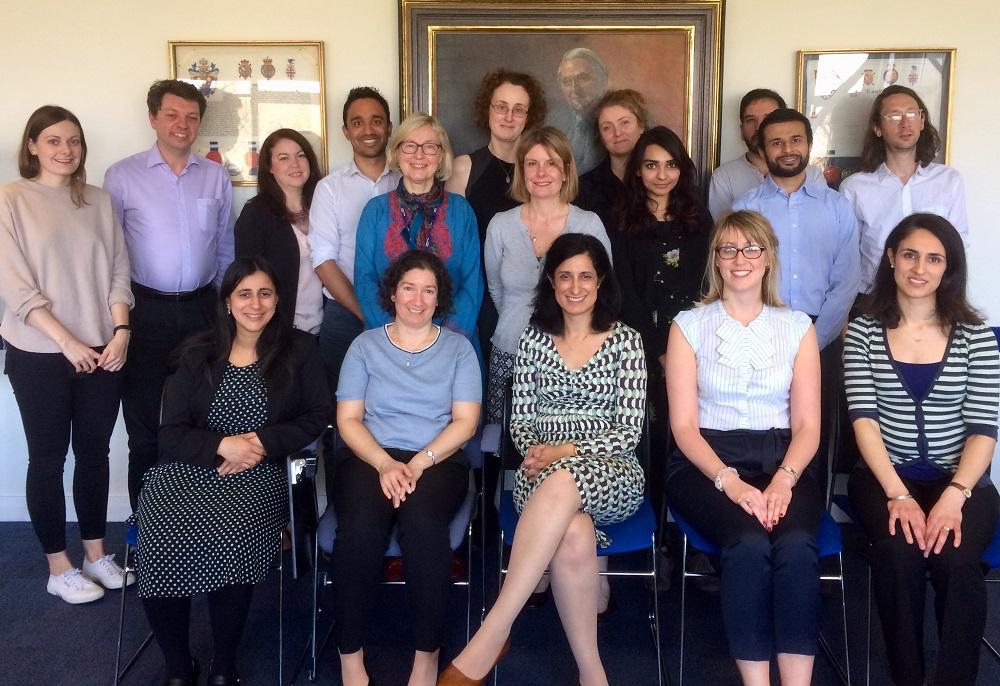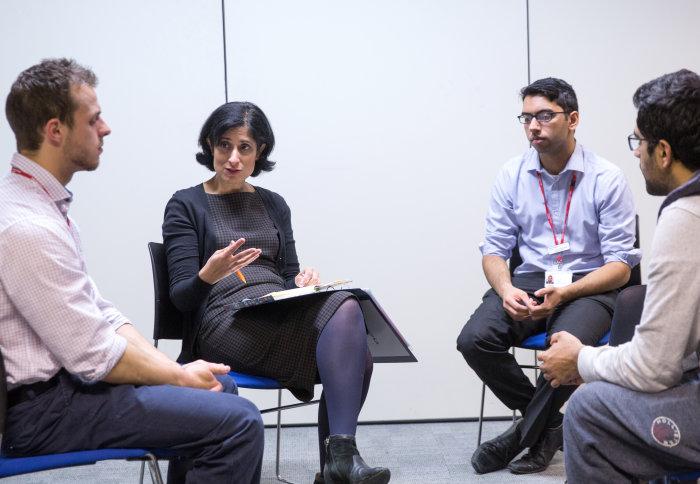Over the years I’ve worked as a GP in some of South London’s most challenging areas, on my patch in the last few months there have been three tragedies – three young boys lives have been lost to teen stabbings. I recall so clearly about ten years ago when I came face to face with a devastating news headline such as this. Midway through a morning surgery our receptionist came in to see me saying, ‘that boy’s dad is coming in to see you next, just giving you the heads up doctor”. She was referring to a 15-year-old boy that had been stabbed by another teen gang on the local council housing estate the day before. He had died despite the senior partners frantic attempts at resuscitating him.
What followed to this day is one of the most powerful learning experiences of my life. The boy’s father walked in, eyes swollen and he slumped in the chair opposite me. After some silence he put his hands out towards me, and I instinctively leant forward to hold his hands back. In the silence that followed, he started quietly reciting the Lords Prayer, which we then recited together. We sat like this for some time, after which he got up and left thanking me.
I’m not sure what words truly summarise what happened in this space, somehow the words of empathy and patient centredness doesn’t do it justice. What I am sure did happen, was a deep connection between a doctor and a patient, an understanding that medicine is far more than just diagnosing and treating biological diseases and an unfailing desire to make whatever difference I was able to in that moment in time. What ended for that family with a tragic death had series of complex bio psychosocial causes behind it and the causes of these causes even more complex.
Medical education has a critical role in training future doctors who understand this complex nature of health and illness, the impact of societal inequity, and who are committed to improving the health outcomes for the communities they serve.
This notion of social accountability is the epicentre of our team’s vision, and it is this focal point that has directed our attention, energy and drive over the last few years. The team’s visionary approach to education has been acknowledged both internally winning a number of College President’s teaching awards and NHS awards, and more recently winning the Advance HE’s national Collaborative Award for Teaching Excellence award (CATE).

First and foremost our journey with social accountability has ‘started at home’, valuing and embracing our own collective diversity and strengths, respecting as a team we are all accountable to each other. This has led to the creation of the team’s ‘eCoP’ model – three educational Communities of Practice within the team, each composed of academics, students, trainee doctors, administrative staff and managers who view their work in education and research through the lenses of ‘the 4Cs’- community, collaboration, creativity and cycle of research. The eCoP’s have been instrumental in translating our vision of social accountability and bringing alive the pedagogic wisdom within Imperial College’s Learning and Teaching Strategy. This has led to many members of the team and their work developing in new unpredicted ways. For example members of our administrative and management team chair the eCoPs, are working on research projects, have trained in coaching skills and are applying for HEA Fellowship accreditation alongside academic staff.
"As a student, the eCoP provided me with a support network and mentorship that I have been unable to find in any other capacity. I felt like a valued member of a professional team" (Student)
“As an administrator, I not only feel part of the learning that takes place within our eCoP, but I feel that I am able to drive and shape it. I haven’t been able to do this in any other team that I have been part of in my career. It is a unique experience where there is no hierarchy and we evolve ‘as one” (Manager).
There are over fifteen courses and projects that the team now leads across the MB BS degree. An example is the “Community Action Project” (CAP) where medical students in year three of the MBBS degree undertake a ten week GP placement, identify a real-world problem within their local community and engage with key community stakeholders, patient and charity groups to design an intervention to address the challenge identified. These student-led projects have been outstanding, demonstrating how trust and space within the curriculum directly feeds student passion and creativity. Students in these projects have been working with homeless hostels to improve their access to healthcare, have delivered educational sessions and drop in health checks to local diverse communities and developing online resources to help with patient translation and health literacy.
“For the first time I felt I was able to do something as a student and I wasn’t at University just waiting to become a doctor” (Year 3 medical student)

The team are now a UK forerunner in developing longitudinal clerkships, consulting with leaders at Harvard Medical School's Cambridge Integrated Clerkship. Students are placed within the community working as ‘paraprofessionals’ learning through apprenticeship, actively contributing to patient care. The team’s work also involves outreach work with local primary and secondary schools and are working with Imperial College’s EDU and digital team to create open online (MOOCs) and face to face courses in coaching skills that are accessible internationally, along with other educational resources to support our teaching faculty. Their educational research reach is expanding, collaborating externally with Sheffield, Swansea, UCL, Harvard Academy of Educators and Birbeck University.
We believe that education is one of most powerful tools we have to sustainably empower our students and society. If we can join together with our students, policy makers and local community in a shared vision, to direct both our education and research towards meeting a social obligation, we will move one step closer to creating leaders of the future with empathic hearts and wise socially responsible minds.
Sonia was appointed as the Head of Undergraduate Primary Care Education in the Department of Primary Care and Public Health at Imperial College London in February 2013.
She studied Medicine at Kings College London and has worked as a GP in South London for over 15 years.
Over the past 15 years she has also been involved in Medical education, first working as a GP Assistant, at GKT Medical School where she taught on a number of undergraduate courses including PBL and Medical Humanities. This led her to study for a Masters in Primary Care at Kings College, which she completed in 2004 with a Distinction. Her Masters dissertation looked at the effectiveness of PBL as a teaching tool in medical schools.
She joined the London Deanery in 2004 working as a Programme Director for Kings for 9 years and was appointed as Pan London Director for Quality and Innovation. She has also been involved in teaching for the Deanery Faculty Development Unit, has been a GP tutor for newly qualified GP's and has had extensive experience with GP recruitment and ARCP Panels. She was listed as one of Pulse magazines GP rising stars in 2015 and was awarded the Imperial Presidents Medal for outstanding contribution to teaching in 2016, with a five of her team receiving Presidents awards for teaching over the past two years. In 2018 her team were the proud recipients of the national Higher Education Academy CATE excellence in education team award.
Since arriving at Imperial the GP teaching team has trebled in staff numbers, has seen a significant increase in the courses that they deliver and in their educational research output. She has led numerous successful HENWL and College bids to support innovative teaching and research projects and is currently collaborating with UCL, Birkbeck and Harvard University. She has particular interest in social accountability in medical education, service-learning, medical humanities and longitudinal integrated clerkships.
Find out more about Advance HE's CATE programme.